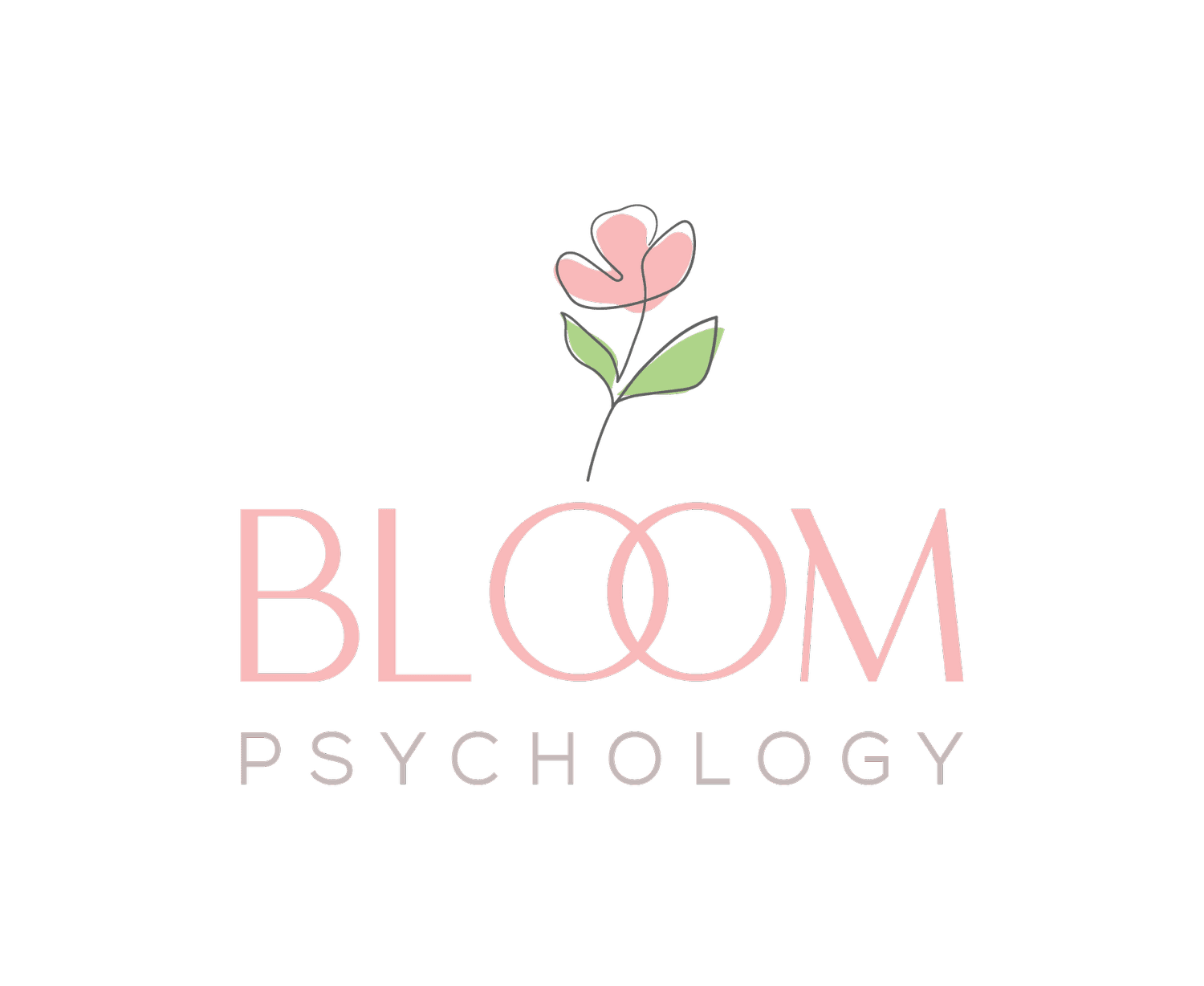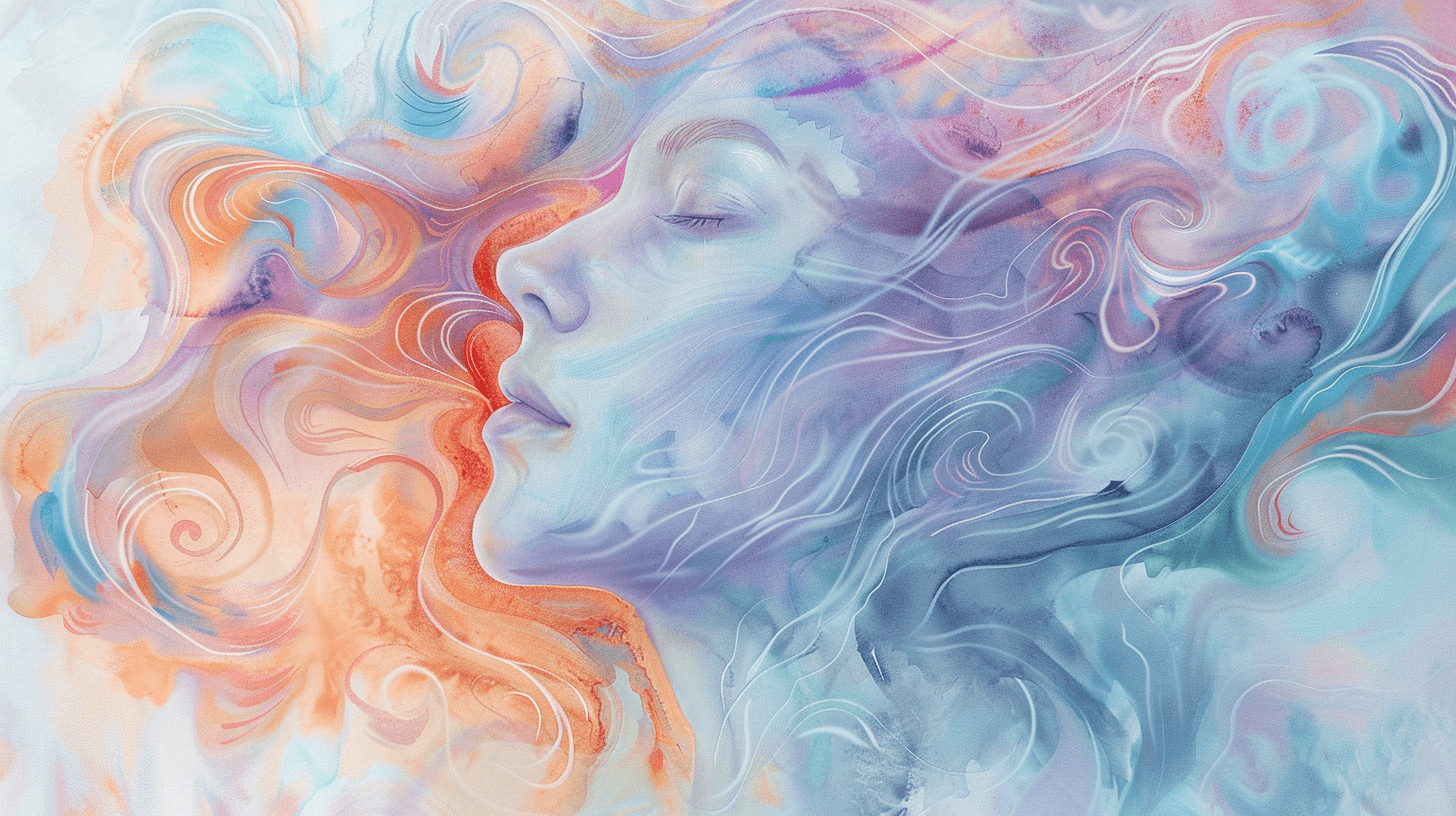Listen to this article
Narrated by Dr. Jana Rundle• 1.5 MB
Keyboard shortcuts: Space or K to play/pause • ← → to seek ±5s
You're lying in bed at 2 AM, heart racing, mind spinning with anxious thoughts you can't control.
It's day 24 of your cycle—the same day every month when the world feels darker, more overwhelming, more dangerous than it actually is.
Or maybe you're in perimenopause, waking up drenched in sweat with panic attacks that come out of nowhere.
Or you've just started a new birth control and suddenly you feel anxious all the time.
You're wondering: Is this all in my head? Or is there something deeper going on with my body?
Here's the truth: Your anxiety isn't "all in your head"—it's significantly driven by hormonal fluctuations. And understanding this connection doesn't minimize your experience. It validates it, explains it, and opens pathways to more effective treatment.
The Hormone-Anxiety Connection: What Science Tells Us
For decades, women have been told their hormone-related mood changes are "just part of being a woman" or something they need to "learn to deal with." But modern neuroscience tells a different story.
Recent research from 2024-2025 shows that estrogen and progesterone aren't just reproductive hormones—they're powerful regulators of brain chemistry, mood, and anxiety.
"Estrogen and progesterone play a crucial role in regulating mood, cognition, and overall brain health. Hormonal fluctuations contribute to the onset and progression of mental health disorders that disproportionately affect women."
This isn't speculation—it's documented in peer-reviewed neuroscience research. Your hormones directly affect the neurotransmitters that control anxiety, including:
Serotonin (the "feel-good" neurotransmitter)
GABA (your brain's natural anti-anxiety chemical)
Dopamine (motivation and reward)
When your hormones fluctuate, these brain chemicals fluctuate too. And that's when anxiety strikes.
The Menstrual Cycle: When Hormones Drive Anxiety
If you've noticed your anxiety worsens at specific times in your cycle, you're not imagining it.
The Luteal Phase: The Anxiety Danger Zone
Days 15-28 of your cycle (after ovulation, before your period) are when many women experience heightened anxiety.
Research shows that anxiety, stress, and other psychological symptoms are elevated throughout the luteal phase, particularly in the late luteal/premenstrual days when estrogen and progesterone are plummeting.
What's happening in your body:
Progesterone peaks mid-luteal phase, then crashes before menstruation
Estrogen also drops in the late luteal phase
These hormonal crashes trigger changes in GABA and serotonin
How this feels:
✓ Sudden onset of worry or doom
✓ Physical anxiety (racing heart, shakiness)
✓ Irritability and emotional sensitivity
✓ Insomnia or restless sleep
✓ Difficulty concentrating
The Follicular Phase: When You Feel Better
Days 1-14 (menstruation through ovulation) are often when anxiety improves.
Why? Estrogen is rising steadily during this phase. Higher estrogen supports serotonin production and GABA function, which naturally reduces anxiety.
Many women describe feeling more energetic, optimistic, and mentally clear during the follicular phase—this isn't coincidence, it's neurobiology.
PMDD: When Hormonal Anxiety Becomes Debilitating
Premenstrual Dysphoric Disorder (PMDD) affects approximately 3-8% of menstruating women and represents the severe end of hormone-related anxiety.
What Makes PMDD Different from PMS
PMS (Premenstrual Syndrome):
Mild to moderate symptoms
Doesn't significantly interfere with life
Manageable with lifestyle changes
PMDD (Premenstrual Dysphoric Disorder):
Severe mood symptoms including intense anxiety, panic, or despair
Significantly impairs functioning (work, relationships, daily activities)
Requires medical treatment
Symptoms resolve within days of menstruation starting
PMDD Symptoms
In addition to severe anxiety, PMDD can cause:
Deep depression or feelings of hopelessness
Severe irritability or anger
Panic attacks
Mood swings
Difficulty concentrating
Fatigue or low energy
Food cravings or binge eating
Physical symptoms (bloating, breast tenderness, headaches)
The defining feature of PMDD: Symptoms begin in the late luteal phase (week before period) and resolve within days of menstruation starting. This predictable timing is what distinguishes PMDD from other mood disorders.
Why Some Women Develop PMDD
Research in 2024-2025 shows that women with PMDD have heightened sensitivity to normal hormonal fluctuations in the central nervous system.
It's not that their hormone levels are abnormal—it's that their brains respond differently to normal hormonal changes, particularly the actions of progesterone metabolites like allopregnanolone on GABA-A receptors.
How Estrogen Protects Against Anxiety (And What Happens When It Drops)
Estrogen is often called a "neuroprotective hormone" because of its extensive effects on brain health.
What Estrogen Does for Your Brain
Serotonin Regulation:
Increases serotonin production
Increases sensitivity of serotonin receptors
Decreases breakdown of serotonin (keeps levels higher longer)
Brain Protection:
Promotes neurogenesis (growth of new brain cells)
Modulates synaptic plasticity (brain's ability to adapt)
Supports healthy brain structure
Neurotransmitter Support:
Enhances dopamine function
Supports GABA activity
When Estrogen Drops
Times when estrogen plummets:
Late luteal phase (before period)
Postpartum (dramatic crash after birth)
Perimenopause and menopause
Breastfeeding (estrogen stays low)
What low estrogen feels like:
Increased anxiety and panic
Mood instability
Irritability
Brain fog and difficulty concentrating
Emotional sensitivity
This is why many women report anxiety worsening right before their period, immediately postpartum, or during perimenopause—all times when estrogen is low.
Progesterone: The Paradox of the "Calming" Hormone
Progesterone is often called the "calming hormone" because it metabolizes into allopregnanolone, which activates GABA-A receptors (the same receptors targeted by anti-anxiety medications like benzodiazepines).
When Progesterone Helps
When progesterone is stable and metabolizing properly, it:
Promotes relaxation
Induces sleep
Reduces anxiety
Creates sense of calm
This is why early-to-mid luteal phase (when progesterone is rising and high) can feel emotionally stable for many women.
When Progesterone Worsens Anxiety
But here's the paradox: progesterone can also increase anxiety in some women.
Recent research shows that "women with higher average progesterone levels across their cycles reported higher levels of anxiety."
Why does this happen?
Individual sensitivity: Some women's brains are more sensitive to progesterone fluctuations
GABA receptor changes: Rapid progesterone withdrawal alters GABA-A receptor composition, reducing their anxiolytic (anti-anxiety) effectiveness
Progesterone metabolites: Not all women metabolize progesterone the same way; some may produce metabolites that worsen anxiety
This explains why:
Some women feel worse when progesterone is high (luteal phase)
Others feel worse when it crashes (right before period)
Birth control with synthetic progestins can worsen anxiety in some women but help others
Life Stages: When Hormonal Anxiety Strikes Hardest
1. Puberty: The First Hormonal Shift
Many women first experience anxiety during puberty when hormones begin cycling for the first time.
Estrogen and progesterone surges affect brain development at a critical time, which is why anxiety disorders often emerge in adolescence, particularly in girls.
2. Reproductive Years: The Monthly Cycle
For 30-40 years of your life, your hormones cycle every month, creating predictable windows of vulnerability to anxiety.
Risk factors for cycle-related anxiety:
History of anxiety or depression
High stress levels
Poor sleep
PMDD or severe PMS
Hormonal birth control side effects
3. Pregnancy: Fluctuating Hormones
During pregnancy, estrogen and progesterone increase 10-100 fold. For some women, this stabilizes mood. For others, the massive hormonal changes trigger anxiety.
Pregnancy anxiety can manifest as:
Constant worry about baby's health
Fears about childbirth
Panic attacks
Health anxiety (obsessively checking symptoms)
4. Postpartum: The Steepest Hormonal Drop
Within 24-48 hours after birth, estrogen and progesterone plummet from their pregnancy highs to near-zero.
This is the steepest, fastest hormonal drop your body will ever experience—more dramatic than puberty, menopause, or any other transition.
Combined with sleep deprivation and life stress, this hormonal crash creates the perfect storm for postpartum anxiety (PPA), affecting up to 15-20% of new mothers.
5. Perimenopause: The Rollercoaster Years
Perimenopause (the years leading up to menopause, typically ages 40-55) is characterized by erratic hormonal fluctuations.
Estrogen doesn't just gradually decline—it surges and crashes unpredictably, often within the same cycle.
Why perimenopause triggers anxiety:
Unpredictable estrogen fluctuations
Declining GABA function
Sleep disruption from night sweats and hot flashes
Brain chemistry changes
Many women report new-onset anxiety or panic attacks during perimenopause, even if they never experienced anxiety before.
6. Menopause: The Post-Hormonal State
After menopause, estrogen and progesterone remain consistently low. For some women, this brings stability. For others, chronic low estrogen contributes to ongoing anxiety.
Menopause-related anxiety often involves:
Generalized worry
Panic attacks
Health anxiety
Sleep-related anxiety (insomnia is common in menopause)
Birth Control and Anxiety: What You Need to Know
Hormonal birth control fundamentally changes your hormone levels, which means it can significantly affect your anxiety.
How Birth Control Affects Hormones and Mood
Combined pills (estrogen + progestin):
Suppress your natural hormone production
Provide synthetic estrogen and progestin at steady levels
Eliminate the natural hormonal cycle
Progestin-only pills, IUDs, implants:
Provide synthetic progestin only
Often suppress ovulation
Can cause low estrogen state
Why Birth Control Can Worsen Anxiety
Synthetic progestins aren't the same as natural progesterone. Some women experience increased anxiety on birth control because:
Synthetic progestins may not metabolize into calming neurosteroids the same way
Some formulations lower estrogen too much
Suppressing the natural cycle removes hormonal peaks that some women's brains need
Red flag signs birth control is worsening your anxiety:
Anxiety started or significantly worsened after starting birth control
Constant low-level anxiety that wasn't there before
Panic attacks began after starting birth control
Symptoms improve during pill-free week or after stopping
Birth Control That May Help Anxiety
For PMDD specifically: Combination birth control with drospirenone and ethinyl estradiol (like Yaz) has the strongest evidence for reducing premenstrual symptoms.
Why it works: Drospirenone has anti-androgenic properties and doesn't worsen mood the way some other progestins do.
However, birth control affects everyone differently. What helps one woman's anxiety might worsen another's.
Evidence-Based Treatments for Hormone-Related Anxiety
1. Therapy (Essential for All Types)
Even when anxiety is hormonally driven, therapy teaches your brain to respond differently to the anxiety signals your body is sending.
Most effective approaches:
Cognitive Behavioral Therapy (CBT): Challenges anxious thoughts, teaches coping skills
Acceptance and Commitment Therapy (ACT): Helps you accept hormonal fluctuations without fighting them
Somatic therapy: Addresses the physical experience of anxiety
2. SSRIs (First-Line for PMDD and Cycle-Related Anxiety)
Selective Serotonin Reuptake Inhibitors (SSRIs) are the most effective treatment for PMDD and severe cycle-related anxiety.
Evidence: A Cochrane review showed all SSRIs (fluoxetine, sertraline, paroxetine, citalopram) significantly reduce premenstrual symptoms.
Unique to PMDD: SSRIs work rapidly for hormone-related anxiety (within days), unlike depression treatment which takes weeks.
Dosing options:
Continuous: Take daily throughout the month
Luteal phase only: Take from ovulation through first day of period (days 14-28)
Both approaches work, and luteal-phase dosing minimizes medication exposure.
3. Hormonal Treatments
Birth control pills:
Strongest evidence: Drospirenone/ethinyl estradiol (Yaz, Beyaz)
Best for: PMDD, cycle-related anxiety
How it works: Suppresses hormonal fluctuations
Hormone Replacement Therapy (HRT):
Used for: Perimenopause, menopause-related anxiety
Evidence: Estrogen therapy can improve mood and anxiety when low estrogen is the cause
Formulations: Patches, pills, gels
GnRH agonists (Leuprolide):
Reserved for: Severe, treatment-resistant PMDD
How it works: Temporarily shuts down ovaries, eliminating hormonal fluctuations
Downsides: Significant side effects, induces temporary menopause
4. Lifestyle Strategies That Support Hormone Balance
Track your cycle and symptoms:
Use an app to log anxiety levels throughout your cycle
Identify patterns (when anxiety peaks and improves)
Adjust self-care and commitments accordingly
Prioritize sleep:
Sleep deprivation worsens hormonal fluctuations
Aim for 7-9 hours, especially in luteal phase
Sleep directly affects cortisol and hormone regulation
Nutrition that supports hormones:
Protein: Stabilizes blood sugar, supports neurotransmitter production
Complex carbs: Support serotonin production (especially important in luteal phase)
Omega-3s: Reduce inflammation, support brain health (fatty fish, walnuts, flaxseed)
Magnesium: Supports GABA function (dark leafy greens, nuts, seeds)
Movement:
Regular exercise helps regulate cortisol and supports mood
Moderate intensity is best (intense exercise can spike cortisol)
Yoga and walking are especially beneficial for anxiety
Limit alcohol and caffeine:
Both can worsen anxiety, especially in luteal phase
Caffeine increases cortisol and can trigger panic
Alcohol disrupts sleep and hormone metabolism
5. Supplements (With Medical Guidance)
Evidence-based supplements for hormone-related anxiety:
Calcium (1,200 mg daily):
Modest evidence for reducing PMS/PMDD symptoms
Safe and inexpensive
Magnesium (200-400 mg daily):
Supports GABA function (similar to progesterone)
May help with anxiety and sleep
Choose magnesium glycinate for better absorption
Vitamin B6 (50-100 mg daily):
Some evidence for PMS symptom reduction
Supports neurotransmitter production
Don't exceed 100 mg daily (risk of nerve damage)
Omega-3 fatty acids (1,000-2,000 mg EPA+DHA):
Supports overall brain health
May reduce anxiety and depression
Note: Herbal remedies like chasteberry (Vitex) are marketed for PMS, but evidence is inconsistent and not compelling. Always discuss supplements with your doctor, especially if you're on birth control or other medications.
When to Seek Professional Help
See a healthcare provider if:
Anxiety significantly interferes with work, relationships, or daily life
You're experiencing panic attacks
Symptoms are severe (you can't function during certain weeks of your cycle)
You have thoughts of self-harm or suicide
Anxiety persists despite lifestyle changes
You suspect PMDD (severe symptoms in luteal phase that resolve with period)
What to request:
Thyroid panel (TSH, Free T4, Free T3) - thyroid dysfunction can mimic or worsen anxiety
Symptom tracking across 2-3 cycles to identify patterns
Referral to psychiatrist or therapist who specializes in women's mental health
Trial of evidence-based treatment (SSRI, birth control adjustment, etc.)
The Bigger Picture: You're Not "Broken"
If you've been struggling with anxiety that seems tied to your cycle, perimenopause, or other hormonal changes, you're not imagining it, you're not weak, and you're not broken.
Your anxiety has a biological foundation. Understanding that hormones affect brain chemistry doesn't minimize your suffering—it validates it and points toward more effective treatment.
"Hormonal anxiety isn't a personal failing. It's a medical reality that deserves medical attention and support."
You deserve treatment that addresses the whole picture: your hormones, your brain chemistry, your life circumstances, and your individual experience.
Next Steps: Your Action Plan
Track your symptoms for 2-3 months (use an app or calendar)
Identify patterns (does anxiety worsen at specific times in your cycle?)
Talk to your doctor about what you're noticing
Request appropriate testing (thyroid panel, symptom evaluation)
Consider therapy specializing in women's mental health
Explore evidence-based treatments (SSRIs, hormonal adjustments, lifestyle changes)
Resources
International Association for Premenstrual Disorders (IAPMD)
Website: iapmd.org
Resources on PMDD, treatment options, provider directory
North American Menopause Society (NAMS)
Website: menopause.org
Information on perimenopause, menopause, hormone therapy
Bloom Psychology
We specialize in hormone-related anxiety with a comprehensive, evidence-based approach:
Understanding the biological foundations of your anxiety
Evidence-based therapy (CBT, ACT, somatic approaches)
Coordination with medical providers for hormone evaluation and treatment
Psychiatry partner referrals for medication management
Virtual therapy across Texas
In-person sessions in North Austin
Schedule a free 15-minute consultation: bloompsychologynorthaustin.com/book
Call us: 512-898-9510
We understand that hormonal anxiety is real, biological, and treatable. You don't have to wait until it becomes unbearable. You deserve support now.
Dr. Jana Rundle is a licensed clinical psychologist specializing in women's mental health. She believes that understanding the hormonal foundations of anxiety empowers women to seek appropriate treatment and validates their lived experience. Your anxiety is real, it has biological roots, and it's treatable.
Get More Like This
Join hundreds of moms receiving monthly mental health insights, evidence-based tips, and new articles.
No spam. Unsubscribe anytime.
Anxiety Treatment That Works
Evidence-based therapy to help you manage anxiety and find lasting relief.

Jana Rundle
Licensed Clinical Psychologist




